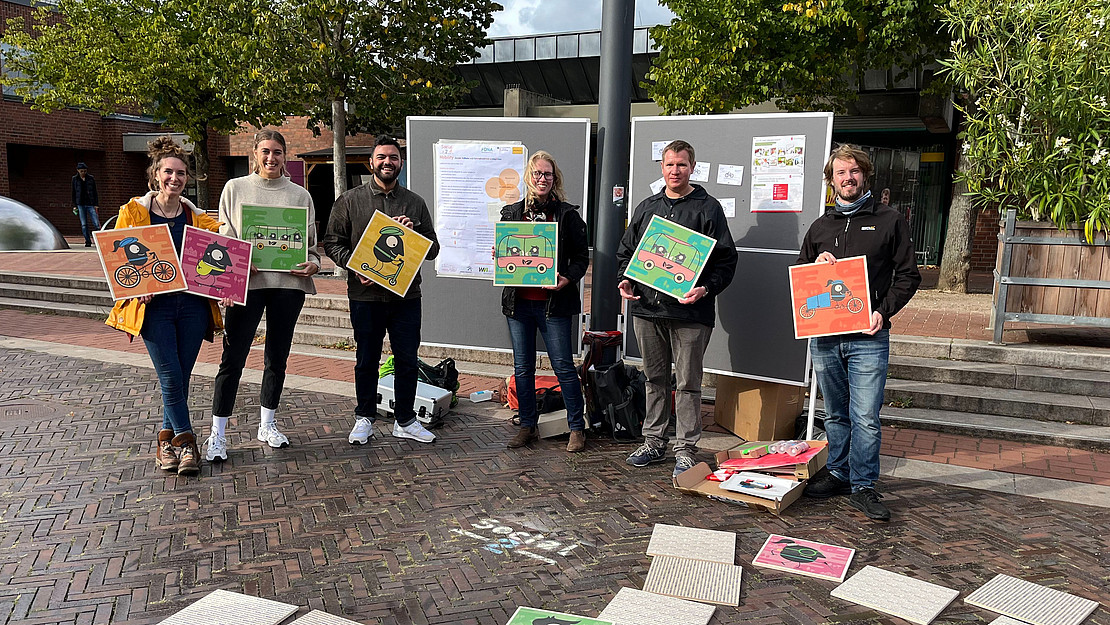This page contains automatically translated content.
Preventing mobility poverty: Demands and suggestions for policy and planning practice
 Image: Alena Fischer
Image: Alena FischerA policy brief is a political recommendation for action in the form of an overview of existing challenges and possible solutions. The recommendations are the result of the Social2Mobility research project, a cooperation between the Department of Transport Planning and Transport Systems at the University of Kassel, the Hannover Region, the Mobility Research Group at Goethe University Frankfurt and WVI Prof. Dr. Wermuth Verkehrsforschung und Infrastrukturplanung GmbH from Braunschweig.
"A sustainable transport system should not only minimize the ecological consequences of transport, but also ensure social participation for all people, especially vulnerable groups," says Professor Carsten Sommer, Project Leader of the research project and Head of the Department of Transport Planning and Systems at the University of Kassel. "In the Hanover region, we have found that not everyone has equal access to mobility," explains Moritz Engbers, project member from the Hanover region. "With the Policy Brief, we are providing planners with guidance on how to make mobility fairer and enable social participation." As a next step, some of the measures developed are to be implemented in three municipalities in the Hannover Region in order to reduce mobility poverty. Mobility poverty is defined as the limited ability of a person or population group to be mobile - for example due to poor transport infrastructure or individual factors such as physical or financial barriers or fears.
In their policy brief, the researchers address the following demands and recommendations for action to specialist planners in transport, spatial and social planning in administrations (municipal and district administrations as well as state and federal ministries):
- In order to reduce mobility poverty, social, spatial and transportation planning must work together. The three planning disciplines can learn and benefit from each other by working together.
- The participation of vulnerable population groups in transport planning processes should be strengthened and can take place, for example, in cooperation with social institutions or with the help of real-world laboratories.
- Social and spatial planning can use transport demand models to evaluate transport measures specifically with regard to the needs of vulnerable groups.
- Transport planning must take into account the diversity of different life situations and the resulting mobility needs.
- Measures to increase the mobility and social participation of vulnerable groups must be as low-threshold as possible.
You can find the full policy brief here.
Contact:
Prof. Dr.-Ing. Carsten Sommer
FB 14 - Institute of Transport
Department of Transport Planning and Transport Systems
Tel.: 0561 804 3381
Email: c.sommer[at]uni-kassel[dot]de